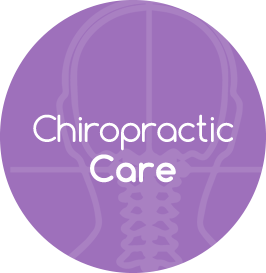ADDICTION FACTS
Disorders such as Addiction, Attention Deficit, Tourettes, Autism and others are considered part of the spectrum of reward deficiency syndromes tied to dysfunction of the D2 dopamine receptor.
Addiction and compulsive disorders are multifactorial, having genetic, psychological, physical, and spiritual components. When functioning optimally, the human organism is capable of producing a cascade of neurotransmitters within the Central Nervous System which results in a sense of well-being. This is called the Brain Reward Cascade.
People suffering from the defective gene are unable to produce a reward cascade and are then said to suffer from Reward Deficiency Syndrome (RDS). Those individuals are unable to produce a feeling of well-being and, consequently, turn to addictive substances or compulsive behaviors that momentarily make them feel better.
RDS can be manifested in mild forms such as chain smoking or in more severe forms such as in chemical addictions. Alcohol addictions, obesity, nicotine addiction, attention deficit/hyperactivity disorder, cocaine addiction, Tourette’s Syndrome and post-traumatic stress disorders are centrally mediated Reward Deficiency Syndromes.
Many things can interfere with the normal function of the Brain Reward Cascade, including, but not limited to the following: genetic factors; loss of normal neurological function (vertebral subluxations) due to physical, emotional and chemical traumas; illness, nutritional deficiencies; and drug and medication interactions.
In vertebrates, the vertebral motor units are intimately related with the Brain Reward Cascade by virtue of the nocioceptive reflex from vertebral joints to the limbic system where the cascade takes place. Research has shown that the limbic system is not just in the brain, but also extends to the spinal cord – especially the dorsal roots and dorsal horn.
Chiropractic Helps with Drug Addiction
This study assessed the outcomes of subjects in a residential addiction facility using P300 wave analysis (brain waves) following chiropractic care. There was an active treatment group and a placebo group. All subjects had a history or drug or alcohol abuse.
The active treatment group received chiropractic adjustments and the placebo group received a sham adjustment. Both groups completed depression and anxiety questionnaires at the beginning of the study and then every 30 days thereafter for the duration of the study. The brain wave analysis was performed weekly for both groups for the duration of the study to assess cognitive function in decision making. The study lasted 90 days.
The group that received chiropractic adjustments showed improvement in depression and anxiety. Brain wave analysis outcomes improved for this group as well.
The authors called for additional research to investigate the clinical implications of chiropractic in this population.
Reference: P 300 Wave Outcomes in Subluxation Based Chiropractic in Residential Addiction Treatment: A Randomized Controlled Clinical Trial. Charles Daniel Vaden, DC, Jay M. Holder, DC, DACACD, Matthew McCoy, MPH, DC, Joyce Sayers, DC, Aaron M. Holder, DC, DACACD. Annals of Vertebral Subluxation Research ˜ Volume, 2020.


